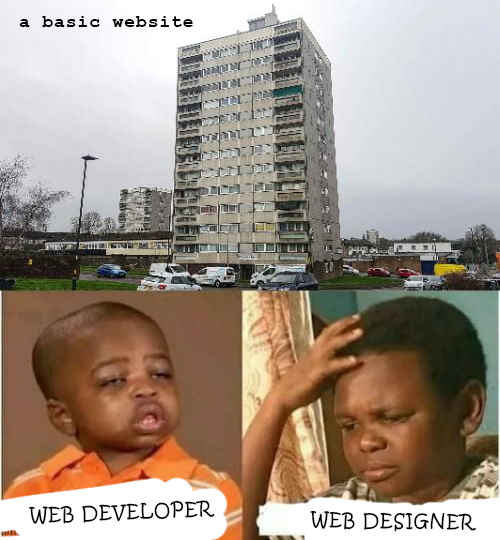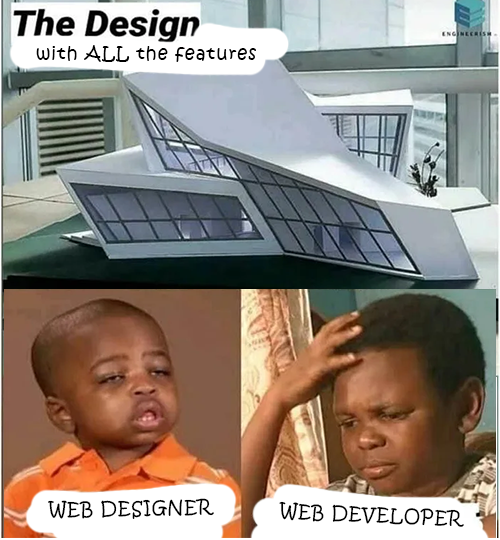A website developer is primarily a coder. They learn programming languages such as HTML, CSS, JavaScript or PHP. They use this lingo to build the website, make it function as the design needs it to, and hopefully tailor it so the code loads seamlessly online.
Web development isn’t just about things like servers, security protocols or optimisation algorithms that most of us mere mortals don’t quite understand. Everything that appears on our screen is code. Images are code, colours are usually hexadecimal in code, how you click a link and where it takes you is code. If they wanted to, a web developer could make your mouse pointer leave a trail of sparkling rainbows as you scroll across this website.
Once a site has been designed for you, the web designer passes it to the web developer for implementation. It’s like asking an architect to design your dream home, and then hiring a builder to construct it. You need both of them to have a beautiful home that functions well for you and isn’t creaking everywhere or falling apart. As with house designs, the more complex the parts, the harder it will also be to build your website (see Figure A).
These days, publishing tools like WordPress take out some of the complicated development work. An everyday user could come in and setup a WordPress site. You select a theme, make pages, write content, and then publish the site online.
However, a good WordPress site can be pretty involved to be successful. It requires some developer knowhow such as CSS or the use of ecommerce plugins. Without these skills, you’ll have trouble creating a unique looking site, or having one with a working shopfront. And if you’re asking for anything more complicated like your very own version of PayPal, you’ll definitely need a team of web developers to build it.

